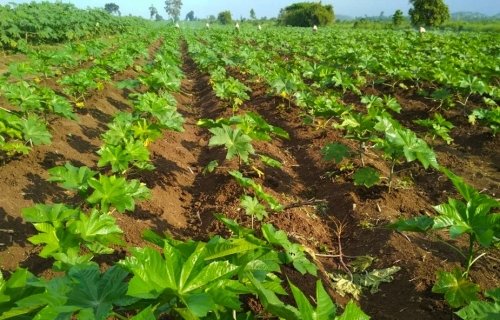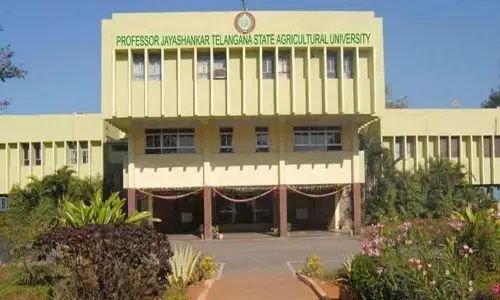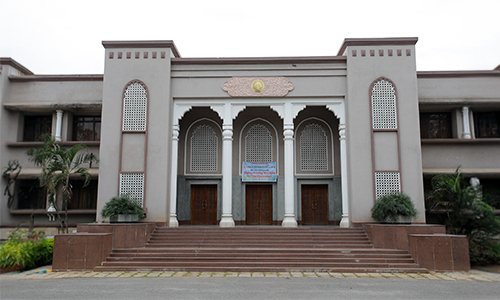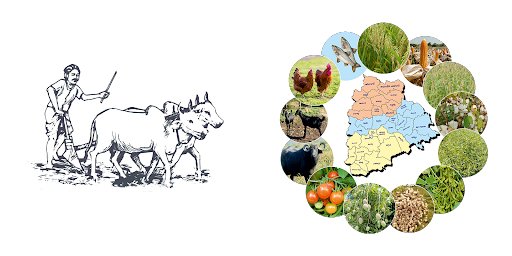Introduction
DEPARTMENT OF FOODS & NUTRITION
The Department of Foods & Nutrition, one of the five major disciplines of the College of Community Science, PJTAU, Hyderabad, has a legacy of over five decades in teaching and research. It builds students’ capacity to address food and nutrition security at family and community levels, providing a strong foundation in food science, safety, quality control, dietetics, and nutrition, along with practical skills in assessment, dietary treatment, and counseling for successful careers.
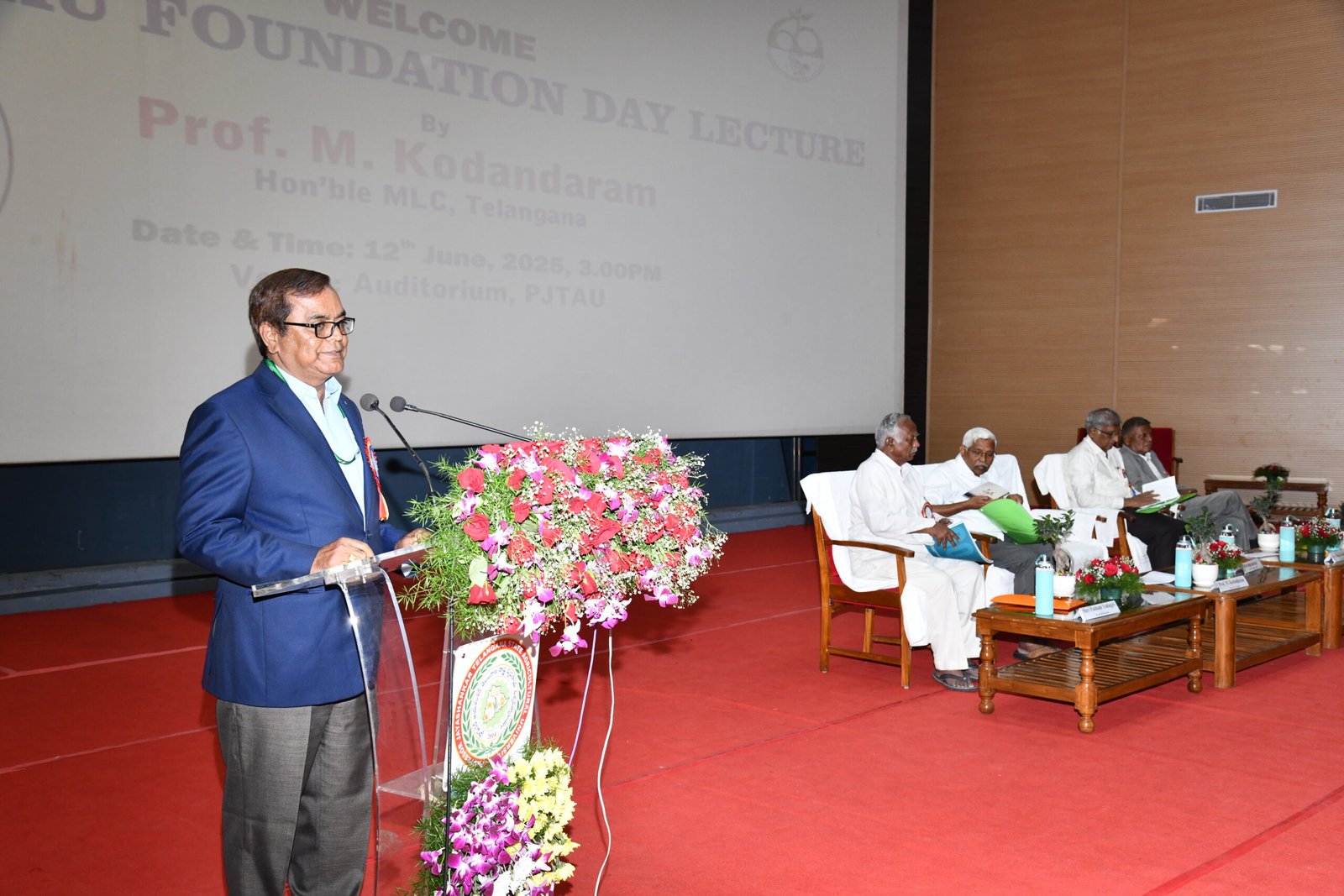
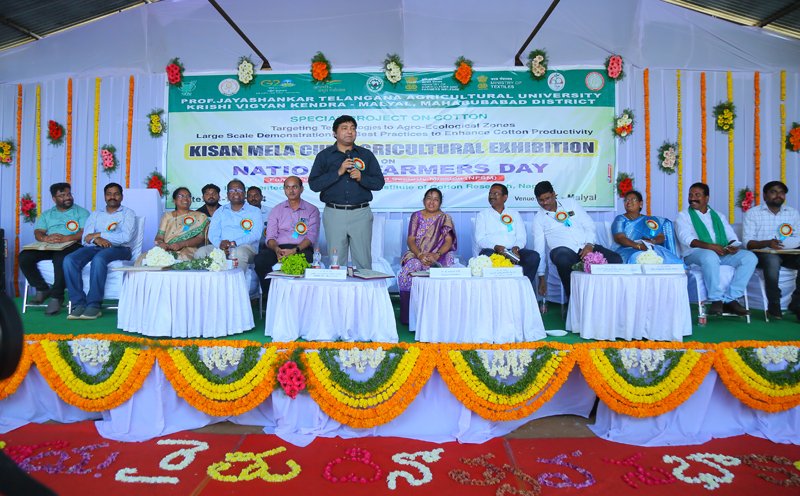
Why this Programme?
The department develops skilled professionals in Foods and Nutrition to meet global needs in health, nutrition, and food security. It emphasizes advanced research in areas like clinical nutrition, food safety, and lifestyle diseases while equipping students with the skills to conduct impactful research and support evidence-based policies for better health and well-being.
Get Started
Aim of the Programme
The objective is to equip students with research skills to independently address societal needs and prepare them for careers in teaching, research, and extension services. The program emphasizes social responsibility and focuses on basic and applied research in food, nutrition, and health management using diverse methodologies.
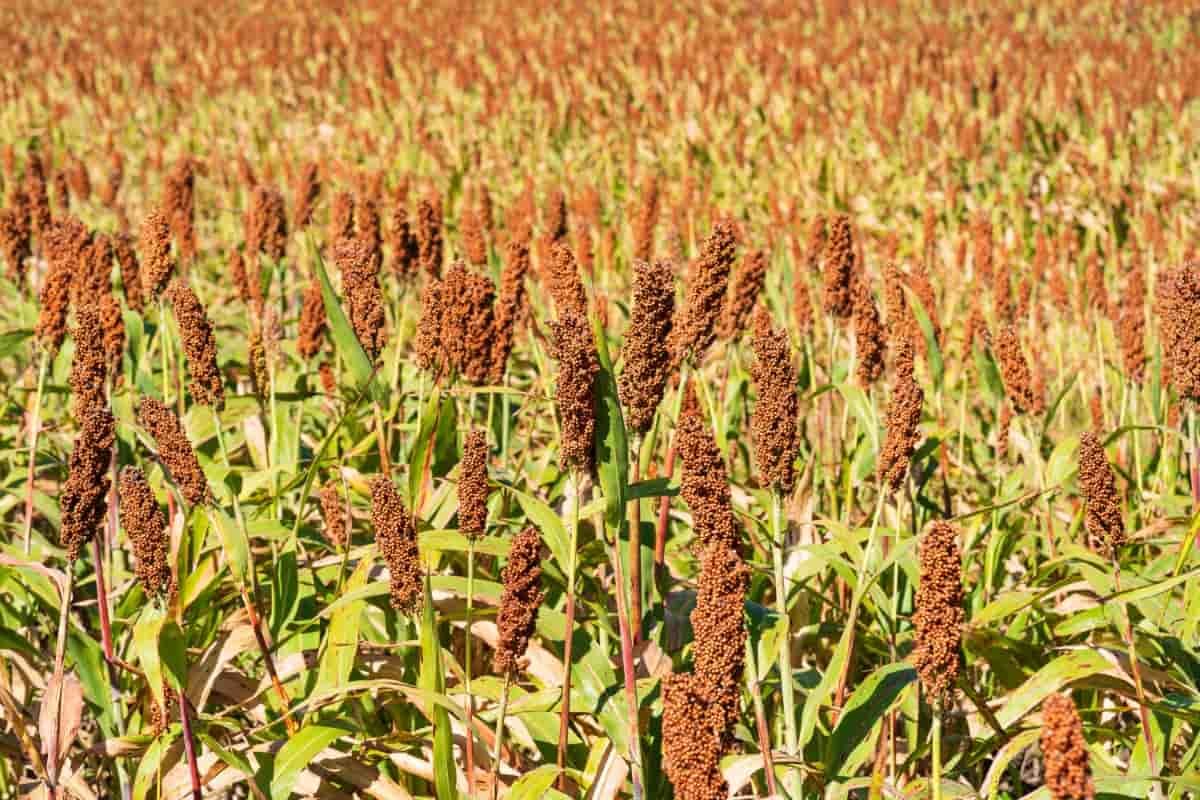
Application and Admission
To get admission into the M.Sc. (Community Science) in Foods & Nutrition degree course, students must have the eligible qualifications specified by the university. Applications should be submitted in the official form and made available by the University Registrar after an admission notification is released. The admissions shall be regulated and made in accordance with the rules and regulations in force.
Future Career
The Foods and Nutrition department offers diverse career opportunities in health, nutrition, food security, and wellness across academia, research, healthcare, public policy, and industry. Graduates can work as faculty in universities, research scientists in institutions like ICMR, ICAR, or CSIR, and nutritionists or dietitians in hospitals, NGOs, and wellness centers. Career paths also include roles as Food Safety Officers, Quality Assurance Experts, Program Managers in government initiatives (ICDS, POSHAN Abhiyan), consultants for international agencies (UNICEF, WHO), R\&D experts in food industries, and content creators or ICT specialists in digital health and nutrition education.
Student Experiences
Master’s in Food & Nutition
Master Course Work
The Master’s program begins with coursework over two semesters in the first year, followed by a research component. Students must complete 20 credits in their major subject, 8 credits in a minor subject, and 6 credits in supporting courses. In addition, they must complete a 1-credit seminar and 30 credits of research. Furthermore, six compulsory non-credit courses must also be completed.
Master's Thesis Research
After completing their coursework in the first year, students begin their thesis research. Each student is assigned an experienced faculty member as the Chairperson of their advisory committee, with the appointment approved by the Dean of Postgraduate Studies. The committee guides the selection of a research topic and supports the student in completing the required 30 research credits.
At the program’s end, students must submit a thesis report detailing the research problems addressed, the methodology employed, and the results obtained. A student may submit their thesis for the Master’s degree only after successfully completing all coursework, fulfilling the required research credits, and passing the qualifying examination.
Research Internship
To broaden their academic exposure, students attend scientific events like conferences and symposia, and many are offered opportunities for short-term internships at national or international institutions.
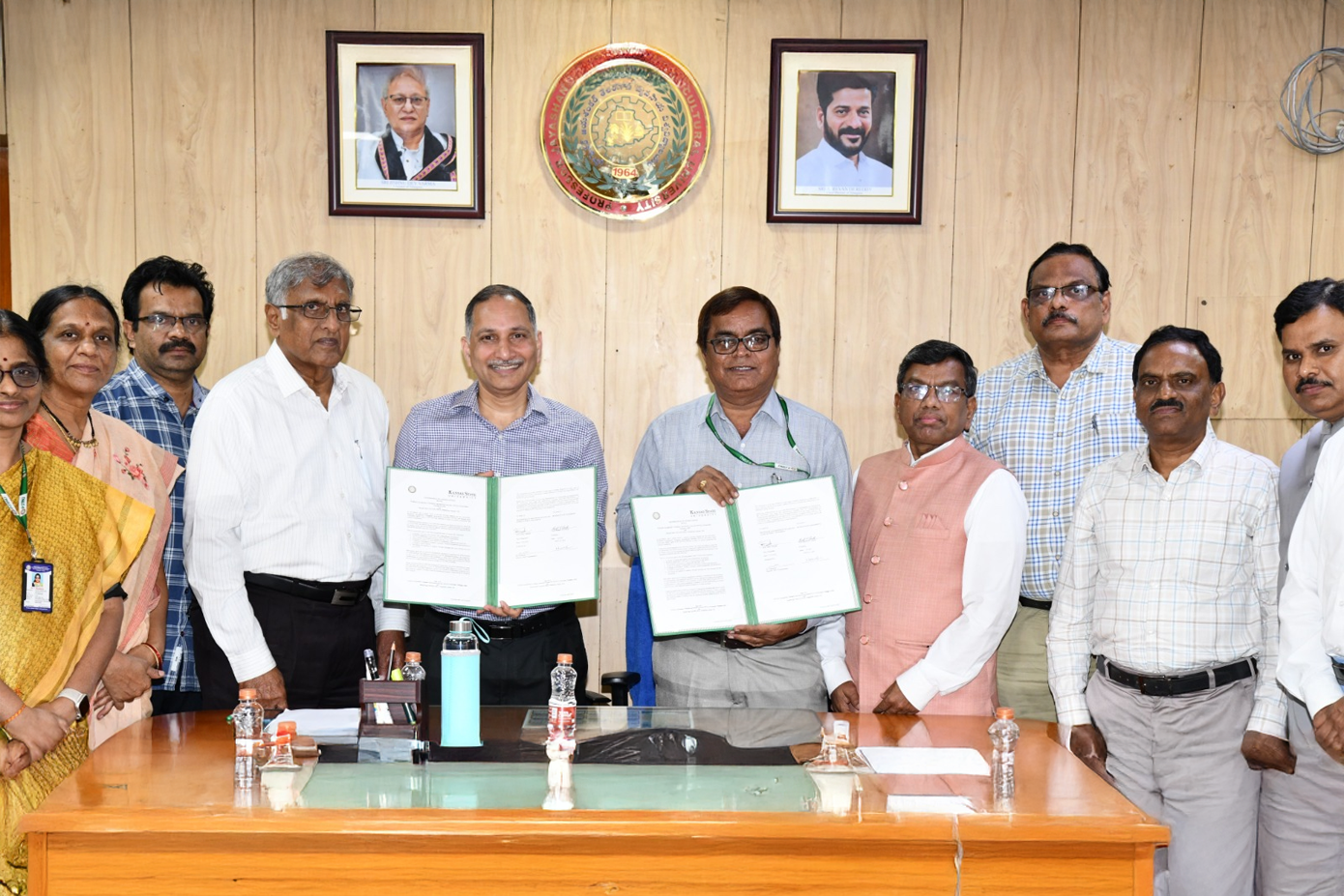
Major Courses Offered in the Department
| S.No. | Course No. | Course Title | Credits |
|---|---|---|---|
| 1 | FN 501* | Advanced Food Science | 3(2+1) |
| 2 | FN 502* | Advanced Nutrition | 3(3+0) |
| 3 | FN 503* | Food Analysis | 4(1+3) |
| 4 | FN 504* | Advances in Community Nutrition | 3(1+2) |
| 5 | FN 505 | Food Processing Technology | 3(3+0) |
| 6 | FN 509 | Advanced Diet Therapy | 3(2+1) |
| 7 | FN 510 | Food Toxicology | 2(2+0) |
| 8 | FN 511 | Advanced Human Physiology | 3(2+1) |
| 9 | FN 512 | Food Service Management | 3(1+2) |
| 10 | FN 513 | Food Product Development | 2(1+1) |
| 11 | FN 514 | Nutrition and Immunity | 2(2+0) |
| 12 | FN 515 | Special Project | 1(0+1) |
| 13 | FN 591 | Master’s Seminar | 1(1+0) |
| 14 | FN 599 | Master’s Research | 20 |
*Compulsory for Masters Program
Minor Courses Offered in the Department
| S.No. | Course No. | Course Title | Credits |
|---|---|---|---|
| 1 | LPT 606 | Microbiology and Quality Control of Livestock Products | 2(1+1) |
| 2 | VPL 604 | Clinical Pathology | 2(1+1) |
| 3 | VPE 605 | Hygiene and Safety of Foods of Animal and Aquatic Origin | 3(2+1) |
| 4 | VPE 606 | Food-borne Infections and Intoxications | 3(2+1) |
| 5 | VPE 607 | Food Safety Standards and Regulations | 3(2+1) |
| 6 | VPT 611 | Techniques in Toxicology | 2(0+2) |
| 7 | EECM 504 | Technology Transfer and Management | 3(1+2) |
| 8 | EECM 508 | Educational Technology | 3(2+1) |
| 9 | EECM 512 | Gender Sensitization for Empowerment | 2(1+1) |
Courses in Supporting Subject
| S.No. | Course No. | Course Title | Credits |
|---|---|---|---|
| 1 | CSC 500 | Research Methodology in Community Science | 3(2+1) |
| 2 | STAT 502 | Statistical Methods for Applied Science | 4(3+1) |
Common Courses
| S.No. | Course No. | Course Title | Credits |
|---|---|---|---|
| 1 | PGS 501 | Library and Information Services | 1(0+1) |
| 2 | PGS 502 | Technical Writing and Communication Skills | 1(0+1) |
| 3 | PGS 503 | Intellectual Property and its Management in Agriculture | 1(1+0) |
| 4 | PGS 504 | Basic Concepts in Laboratory Techniques | 1(0+1) |
| 5 | PGS 505 | Agricultural Research, Research Ethics and Rural Development Programmes | 1(1+0) |
Teaching Staff Details
| Name | Designation | Specialization | Contact No. | Date of Retirement | |
|---|---|---|---|---|---|
| Dr. T. Sucharita Devi | Professor and University HoD | Community Nutrition and Food Product Development | 9440166830 | sucharithadevi.hyd@gmail.com | 30.06.2034 |
| Dr. T. Supraja | Professor | Product Development & Clinical and Therapeutic Nutrition | 8500304325 | sthoomati29@gmail.com | 30.06.2036 |
| Dr. K. Aparna | Professor | Value Addition – Underutilized Foods; Food Quality; Food Processing | 9849019823 | aparnakuna@gmail.com | 30.11.2035 |
| Dr. T. Kamalaja | Senior Scientist | Community Nutrition and Product Development | 9985892124 | kamalaja2038@gmail.com | 30.04.2038 |
| Dr. B. Anila Kumari | Assistant Professor | Grain Processing and Nutritional Profiling (Millets), Food Product Development | 9948123355 | baniladr@gmail.com | 31.12.2033 |
| Dr. P. Janaki Srinath | Assistant Professor | Clinical Nutrition and Metabolic Nutrition | 9885025565 | drjanakisrinath@gmail.com | 31.03.2030 |
Department Photo and Video
